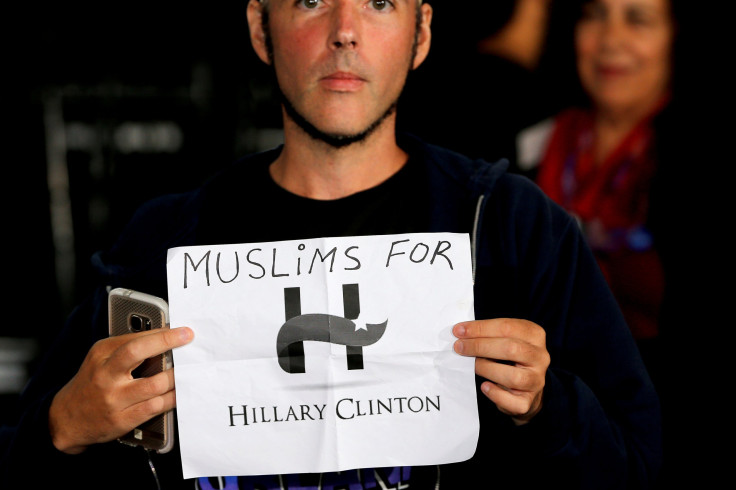Muslims In America: Voters Favor Hillary Clinton Over Donald Trump

Muslims are expected to get out and vote in large numbers on Election Day — and they're largely voting for Democratic nominee Hillary Clinton, according to a poll released Thursday from the Council on American-Islamic Relations. It's perhaps an unsurprising revelation, since the other major-party nominee, Republican Donald Trump, called for a ban on Muslim immigration into the United States during the GOP primaries.
The CAIR survey found that 86 percent of registered Muslim-Americans voters intended to vote in November. For perspective: it's estimated just 53.6 percent of the voting-age population and 84.3 percent of all registered voters turned out for the 2012 presidential election.
Ahead of November, 72 percent of Muslim voters said they intended to vote for Clinton, compared to just 4 percent for Trump, 3 percent for the Green Party's Jill Stein and 2 percent for Libertarian Gary Johnson. About 12 percent were undecided.
The poll also found that 62 percent of respondents felt the Republican Party was "unfriendly toward Muslims," up 11 percentage points from 2012. Two percent of respondents felt the Democratic Party was unfriendly toward Muslims, down four percentage points from 2012. Eight-five percent of Muslim voters felt Islamophobia had increased in the past year, and 91 percent felt the Trump's proposed temporary ban was the wrong decision.
"Our survey results indicate that presidential candidates still have time to appeal to American Muslim voters by addressing issues such as the erosion of civil rights and growing Islamophobia," said Robert McCaw, CAIR's government affairs director.
The poll spoke with 800 Muslim voters via telephone after the first presidential debate, from Sept. 27 through Oct. 5. It has a margin of error of plus or minus 3.5 percentage points.
Muslims are estimated to now make up about 1 percent of the U.S.'s population and have large populations in swing states like Ohio and Virginia. The Washington Post wrote in September that Muslim-Americans could be an important voting bloc to swing the election. Muslim groups are responding to a "caustic campaign by raising money and mobilizing," read a headline on FiveThirtyEight. Most recently, the newly created American Muslim Women PAC endorsed Clinton this week.
"After hearing Donald Trump demonize Muslims, and imply things about our women and culture, I realized we need to take more ownership of the political conversation happening in this country," Mirriam Seddiq, an attorney and creator of the American Muslim Women PAC, said in a statement.
© Copyright IBTimes 2024. All rights reserved.






















